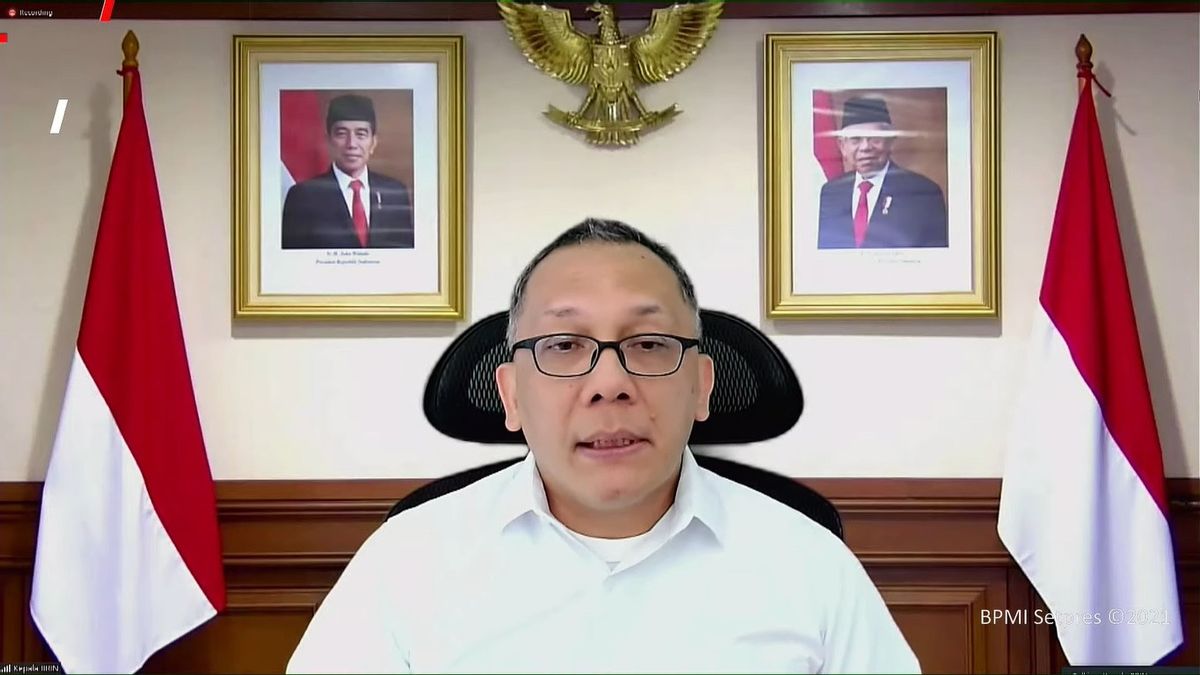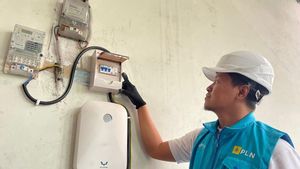JAKARTA - Head of the National Research and Innovation Agency (BRIN) Laksana Tri Handoko said that his party would cooperate with 20 private companies to manufacture medical waste treatment machines in residential areas.
He said this after attending a limited meeting chaired by President Joko Widodo. During the meeting, Jokowi was worried about the increase in medical B3 waste in line with the high number of COVID-19 cases.
Unfortunately, currently only 4.1 percent of hospitals in Indonesia have licensed incinerators or waste burners. Therefore, Jokowi asked BRIN to immediately handle it.
"We at BRIN convey that there are several technologies that have been developed by our friends to help increase the amount of waste processing capacity significantly, especially technology that can be used for waste treatment on a smaller scale and is mobile," said Handoko in a statement. virtual press conference, Wednesday, July 28.
Handoko explained that this mobile waste processor is equipped with plasma. This plasma suppresses the emission of dioxins produced, so it is safe to be near settlements.
"The size is also not large. The operational costs are relatively small. That can be one solution for special shelters for waste treatment. For example, in one output, so there is no need to go to the TPA and this can solve the problem of isoman medical waste (COVID-19 patients). ," he explained.
Previously, the Minister of Environment and Forestry Siti Nurbaya said the amount of hazardous medical waste, especially related to handling COVID-19, reached tens of thousands of tons.
"According to data that was received by the central government and recorded by the Ministry of Environment and Forestry, as of July 27, medical waste was 18,460 tons," said Siti.
However, this data has not been fully recorded and the Ministry of Environment and Forestry continues to try to improve it. Moreover, based on hospital association records, COVID-19 medical waste can reach 383 tons per day.
All waste comes from health care facilities, from hospitals, to self-quarantine isolation sites, COVID-19 testing sites, and vaccination sites.
Medical waste consists of used infusions, masks, vaccine bottles or disposable vaccine bottles, syringes, face shields, bandages, hazmat, personal protective equipment (PPE), gloves, polymerase chain reaction (PCR) test kits, and alcohol swabs. or cleaner.
With so much medical waste, Siti said, President Joko Widodo (Jokowi) directed that medical waste management be carried out more intensively and systematically starting from the smallest environment such as people's homes.
"So pay attention to how the system works from home to service centers or parallel to the handling site," he said.
The English, Chinese, Japanese, Arabic, and French versions are automatically generated by the AI. So there may still be inaccuracies in translating, please always see Indonesian as our main language. (system supported by DigitalSiber.id)













